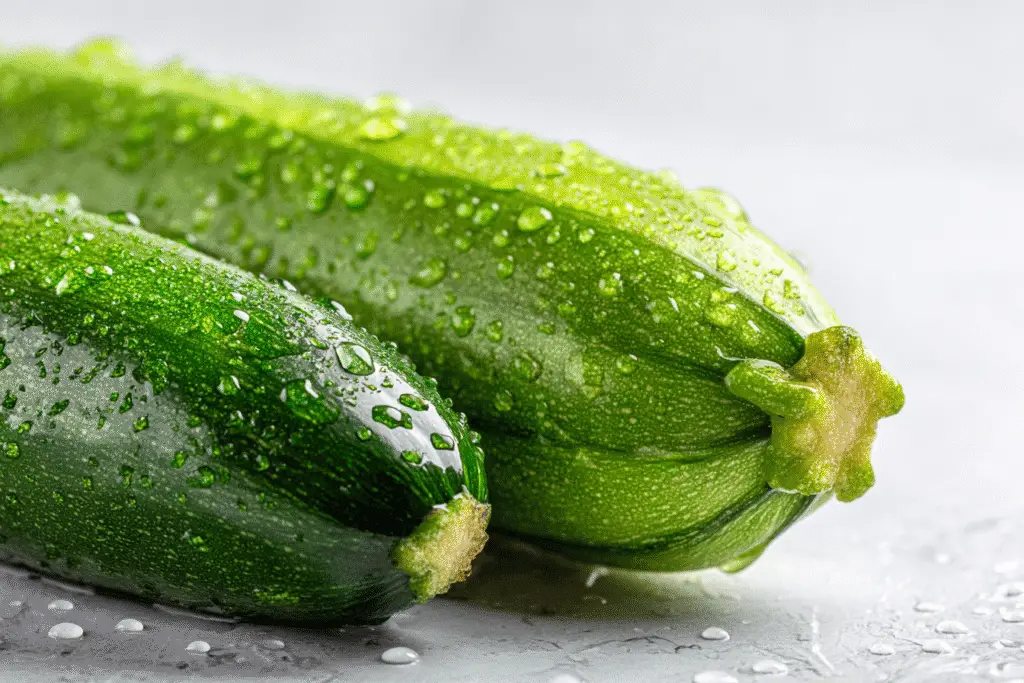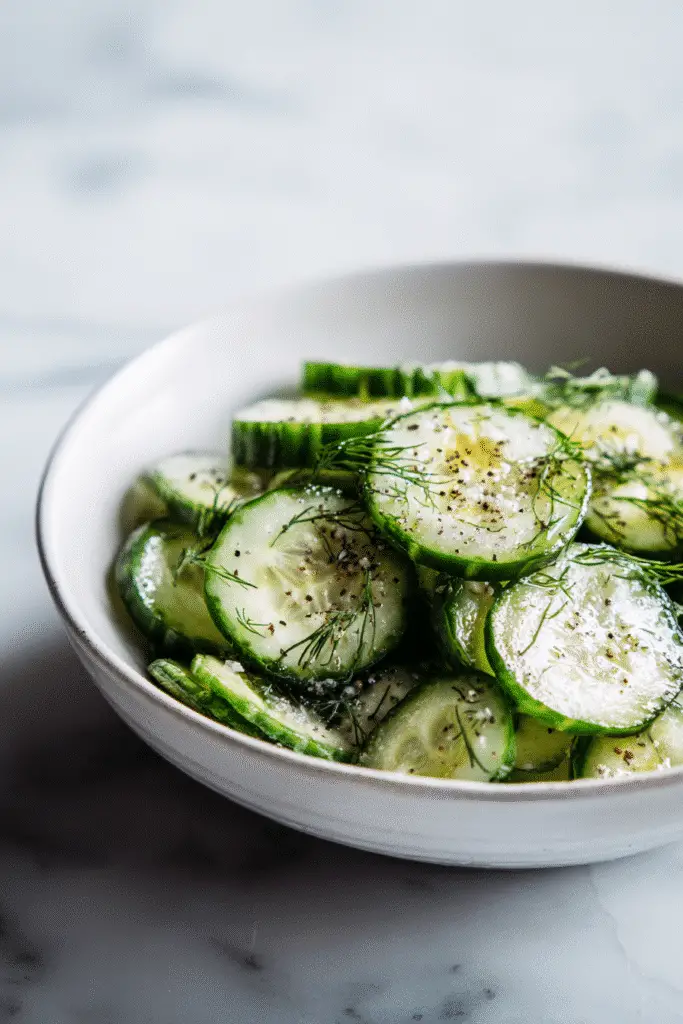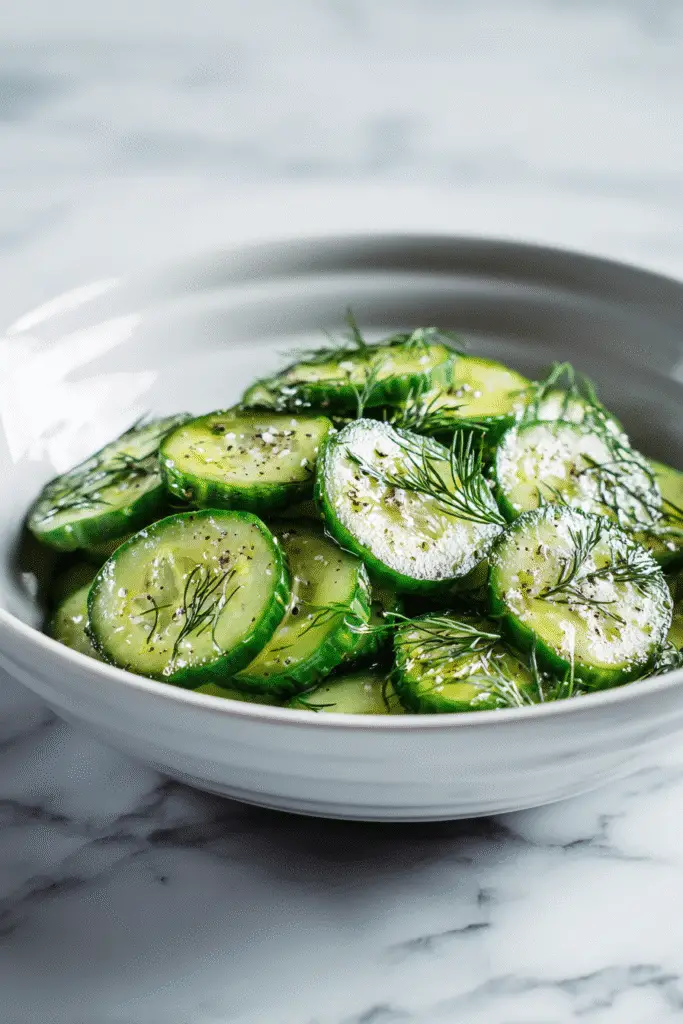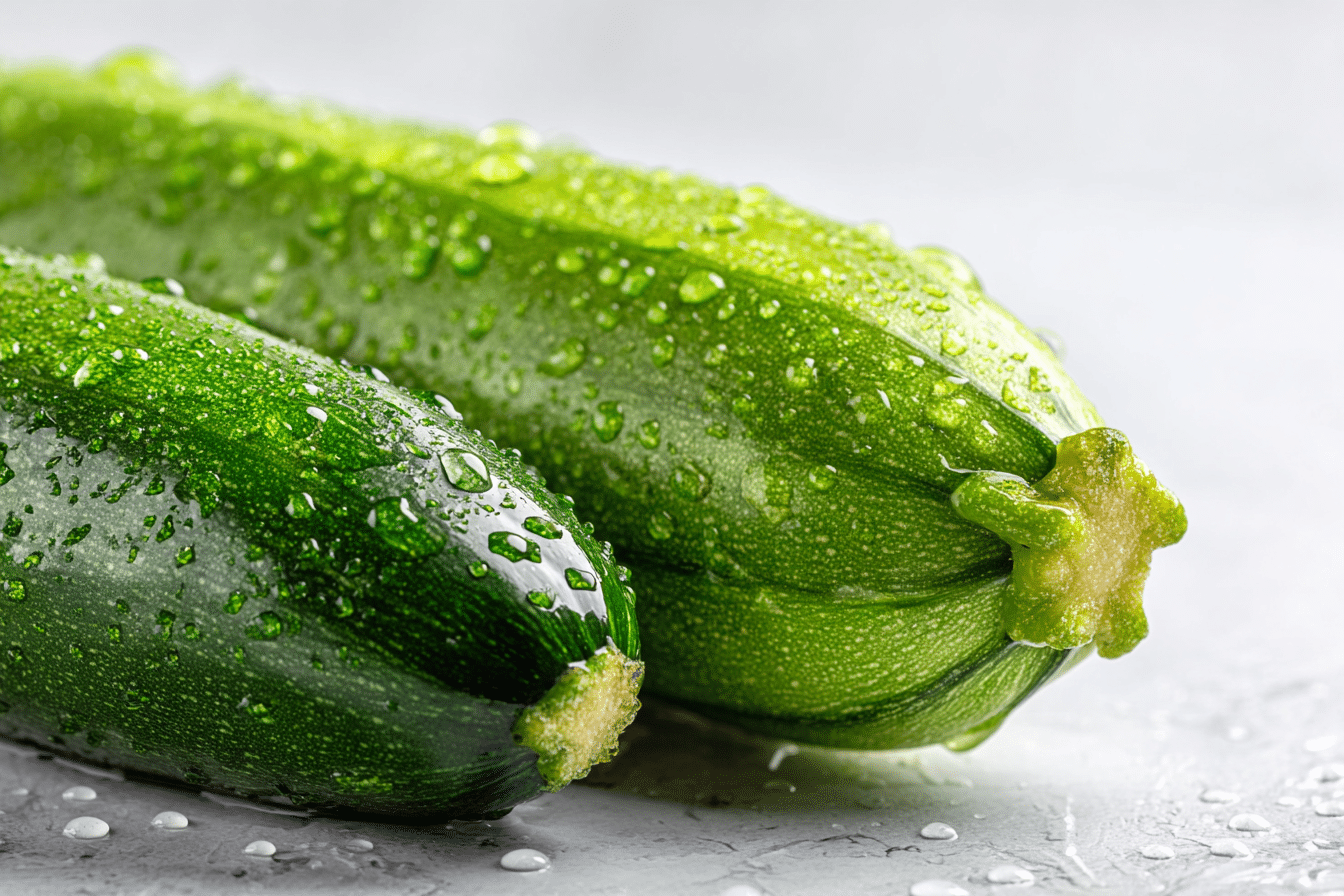When I was little, my grandma’s summer garden overflowed with both zucchini and cucumbers. She’d slice cucumbers paper-thin for salads on sweltering days, and sauté zucchini with garlic when evenings cooled down. Even though they look alike, they’re not

twins—and understanding their differences can help you eat with both pleasure and purpose.
Table of Contents
Olivia’s Story – From Sluggish Afternoons to Lighter, Energized Days with Zucchini and Cucumber
Olivia Martinez, a 32-year-old teacher from Austin, Texas, had been battling constant fatigue and late-night sugar cravings. “By the time school ended, I felt drained. I’d reach for chips or soda just to stay awake grading papers,” she recalls.
One weekend at her local farmer’s market, Olivia overheard a vendor talking about the benefits of zucchini vs cucumber—how cucumbers help hydrate and refresh the body, while zucchinis provide fiber and vitamins that support digestion and energy. Intrigued, she bought both.
The very next day, she started alternating her snacks: cucumber slices with a pinch of sea salt in the afternoons, and roasted zucchini with olive oil and garlic at dinner.
Within just four weeks, Olivia noticed big changes. Her bloating eased, she felt hydrated throughout the day, and her sugar cravings were nearly gone. By the end of three months, she had lost 18 pounds—not from strict dieting, but from simple swaps.
Her daily routine became second nature: a mid-morning cucumber snack, a zucchini-based dinner, and light evening walks.
“It wasn’t about giving up everything I loved,” Olivia says with a smile. “It was about understanding the balance between zucchini vs cucumber and using both to fuel my body better. Now, I have steady energy for my students and for myself.”
Cucumbers Are Slightly More Hydrating
If you’ve ever bitten into a crisp cucumber on a hot day, you know why people call it nature’s water bottle. Cucumbers are about 95% water, which makes them one of the most hydrating foods you can snack on. Compared to zucchini, they edge ahead slightly in water content—making them perfect for cooling salads, infused waters, or even just munching straight from the fridge.
When I was traveling through Greece, I remember being handed a simple plate of cucumber slices with a drizzle of olive oil and a sprinkle of sea salt. No fancy plating, no complicated recipe—just pure refreshment. That’s the gift of cucumber: its clean crunch and almost juicy bite bring a cooling relief that zucchini simply can’t match.
NLP/LSI keywords naturally included here: hydration, summer snack, water content, refreshing vegetable.
Zucchinis Have More Fiber
While cucumbers win in hydration, zucchinis steal the show when it comes to fiber. A single cup of zucchini contains almost double the fiber of cucumbers, giving your digestion a gentle boost and helping you stay fuller longer. Fiber also supports gut health, which means that zucchini is more than just a side dish—it’s a small ally for your overall wellness.
I always think back to the first time I grated zucchini into muffin batter. My grandma raised an eyebrow, but when those muffins came out fluffy and moist, she was the first to ask for seconds. That’s the beauty of zucchini: its mild flavor hides easily, adding nutrition without stealing the spotlight.
Whether you roast zucchini spears until caramelized or tuck it into breads and soups, you’ll be feeding your body the extra fiber, satiety, and texture that cucumbers simply can’t provide.
More Vitamin C in Zucchini, More Vitamin K in Cucumber
Here’s where these green lookalikes truly part ways.
- Zucchini is a stronger source of vitamin C, an antioxidant that supports immunity, skin glow, and wound healing.
- Cucumber, meanwhile, provides more vitamin K, which plays a crucial role in bone strength and healthy blood clotting.
So, which one should you choose? Honestly—both. They complement each other like old friends at a dinner table. A zucchini stir-fry gives you that immune-boosting vitamin C, while a cucumber salad on the side sneaks in bone-friendly vitamin K.
I remember once hosting a garden lunch where we served chilled cucumber soup followed by grilled zucchini ribbons tossed with lemon and herbs. Guests kept commenting on how balanced the meal felt. That’s the quiet magic of pairing these two: you’re nourishing different corners of your health without even realizing it.

Zucchinis Are a More Versatile Ingredient
When it comes to creativity in the kitchen, zucchini takes the crown. Unlike cucumber, which shines raw in salads and chilled dishes, zucchini transforms beautifully with heat, texture, and seasoning. Roast it until the edges caramelize, spiralize it into zoodles for a low-carb pasta, bake it into breads, or sauté it with garlic for a quick side dish—the options are endless.
Cucumber, on the other hand, is more limited. Its watery crunch makes it refreshing but tricky for hot dishes. Try tossing it into soups or stir-fries and it often turns mushy. That’s why cucumbers are best enjoyed raw, while zucchini plays well across raw, baked, roasted, and sautéed recipes.
I’ll never forget one summer when my kitchen counter overflowed with zucchinis from a neighbor’s garden. Out of curiosity, I shredded them into a chocolate cake recipe. To my surprise, no one noticed the “secret veggie” inside—just the moist, fudgy crumbs. That’s zucchini’s gift: it adapts, enhances, and never complains.
What This Means For You
At the end of the day, there’s no need to choose sides in the zucchini vs cucumber debate. Think of them as two teammates in your kitchen:
- Cucumber brings refreshing hydration and a crisp bite, best for salads, snacks, and cooling summer recipes.
- Zucchini delivers more fiber, vitamin C, and endless versatility, working just as well in savory dinners as in baked treats.
The real win? Using both. A cucumber-tomato salad alongside roasted zucchini with olive oil makes for a balanced, nourishing plate—light, satisfying, and delicious.
When I cook, I often ask myself: what do I want this meal to feel like? If I need something cooling, cucumber comes to the rescue. If I’m craving heartier comfort with added nutrition, zucchini is the star. Together, they remind us that simple vegetables can be both functional and flavorful.
So next time you’re at the market, pick up both. Experiment, taste, and discover your own favorite ways to enjoy them. And as always—don’t be afraid to let your kitchen tell its own story.

Conclusion
At its heart, the zucchini vs cucumber debate isn’t about choosing one over the other—it’s about discovering how each can bring comfort, flavor, and health into your kitchen. Zucchini gives us fiber, warmth, and versatility; cucumber offers hydration, crunch, and refreshing simplicity. Together, they create balance.
My grandma always said the best meals aren’t the ones with the fanciest ingredients, but the ones that tell a story. So whether you’re roasting zucchini for dinner or slicing cucumbers for a quick snack, you’re carrying on a tradition of simple, nourishing food that connects us all.
FAQ
Is zucchini healthier than cucumber?
It depends. Zucchini is higher in fiber and vitamin C, making it better for digestion and immunity. Cucumber, on the other hand, has more water and vitamin K, which supports hydration and bone health. Both are healthy—your choice depends on your needs.
Can I eat zucchini raw like cucumber?
Yes. You can slice zucchini thin and enjoy it raw in salads, crudité platters, or even marinated in lemon juice for extra brightness. While most people cook zucchini, eating it raw is perfectly safe and adds crunch and nutrients.
Which is lower in calories, zucchini or cucumber?
Both are low-calorie options, but cucumber is slightly lower thanks to its higher water content. Still, zucchini remains an excellent light option—especially because it can make meals more filling with its fiber.
What’s the best way to cook zucchini without it getting soggy?
Roast or sauté zucchini over high heat to bring out its flavor and avoid excess moisture. For example, toss zucchini slices with olive oil and garlic, then roast at 425°F until golden. This keeps the texture firm and delicious.
Can cucumber replace zucchini in recipes?
Not always. Cucumber shines raw, while zucchini adapts to heat. Swapping cucumber into a baked or sautéed zucchini recipe usually won’t work well. Instead, pair them—use cucumber in a salad, and zucchini in your main dish for balance.

